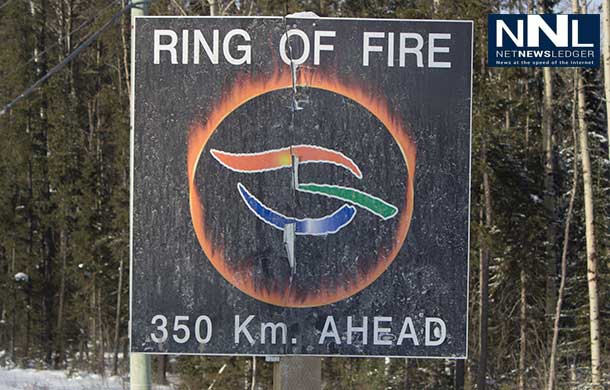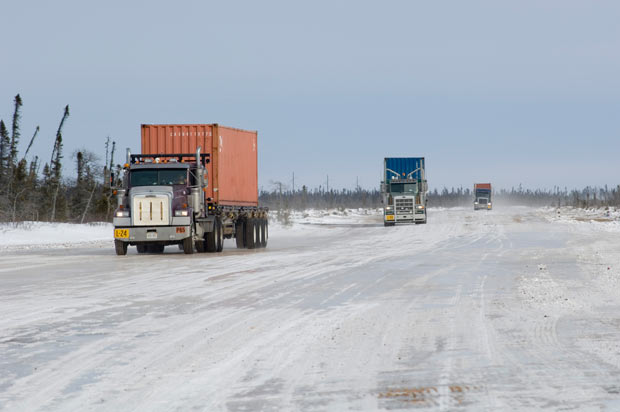
THUNDER BAY – BUSINESS – A new report from the Thunder Bay Chamber of Commerce and the Ontario Chamber of Commerce finds that permit delays, an absence of infrastructure, and intergovernmental quarrelling have stalled development in Ontario’s Ring of Fire, the mineral resource-rich region in the province’s Far North.
The report, ‘Where are we Now? A Report Card on the Ring of Fire’, evaluates progress against seven key challenges to development in the region. It finds that it will be years before a first mine is opened in the region.
The provincial government receives a failing grade when it comes to clearing the regulatory logjam. Delays in issuing exploration permits and approving environmental assessments are preventing mining firms from breaking ground on their projects.

The federal government also earns a failing grade, as it has yet to demonstrate that the Ring of Fire is a national economic development priority. Ottawa has declined to match the provincial government’s commitment of $1 billion for the development of transportation infrastructure.
The report also highlights the lack of transparency in the negotiations between the Government of Ontario and the Matawa-member First Nations, which will outline an approach for resource extraction in the First Nations’ traditional territories. The authors recommend that negotiating parties issue quarterly progress reports on these discussions.
“The Ring of Fire is a high profile mining opportunity that is being watched closely by the global industry,” stated Charla Robinson, President of the Thunder Bay Chamber of Commerce. “These continued delays are leading to reduced investor confidence not only in the Ring of Fire projects but also in Ontario’s mining sector broadly.”
Despite the slow pace of progress, the report finds that the business case for the Ring of Fire is strong. The report notes that the key indicators of the economic health of the Ring of Fire – including the prices for nickel and ferrochrome, and the demand for stainless steel – remain strong despite the global downturn in commodity prices.
“As an investment opportunity, the Ring of Fire’s viability suffers every year that goes by without progress,” says Allan O’Dette, President and CEO of the Ontario Chamber of Commerce. “Already, junior exploration firms are struggling to raise capital and are citing uncertainty in the investment community. This is hurting their ability to advance their projects.”
The report proposes a series of actions must be taken by government to end delays in the region. Essential next steps include establishing agreements with First Nations, settling on an infrastructure plan, and issuing exploration permits.
“Not all the news is bad,” adds O’Dette. “The provincial government has committed $1 billion for transportation infrastructure, which is helpful. The recent joint commitment by the provincial and federal governments to a study of an east-west all-weather road in the Ring of Fire is also encouraging.”
A previous study from the Ontario Chamber of Commerce found that the development of the Ring of Fire will generate $9.4 billion in Gross Domestic Product, $2 billion in government revenue, and sustain up to 5,500 jobs each year in the first 10 years of its development.







